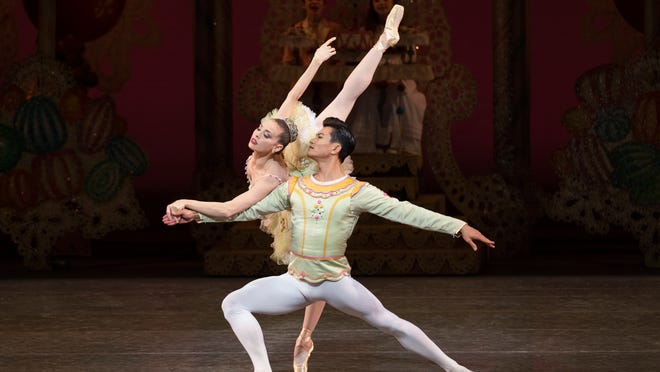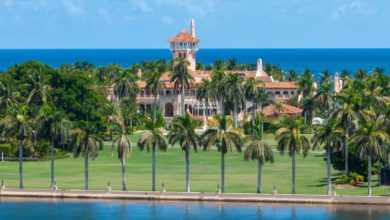Children of Holocaust survivors and refugees felt a knife twist in their backs on learning that Gina Peddy, a school administrator with the Carroll Independent School District in Southlake, Texas, recently advised teachers that they are now required to provide students books with “opposing ... perspectives” when discussing the Holocaust.
The school district soon backtracked, but it’s too late. The compassionless, clueless comments of this bureaucrat challenged the veracity of the lived experiences of the second generation. She invalidated what we have seen with our own eyes, known in our yearning hearts and felt throughout our homes and communities all over America.
Our Holocaust parents’ pain was palpable. Like a second pulse, their sorrows beat within all of us. To replace and rebuild some of what they had lost, survivors and refugees relied on us – their memorial children – sometimes going so far as to name us after relatives murdered by Nazis.

Sadly, some Holocaust parents had little sense of how to love a child, having lost their own nurturing role models at a young age. Others clung desperately to their children, never allowing them to individuate and create their own lives. Some parents even inverted the parent-child relationship, assigning a son or daughter the role of becoming the parent the survivor lost at a young age.
In a disturbing transmission of trauma, the past was a presence suffusing us and our parents as we lived and relived all they had suffered, lost and endured. Holocaust survivors’ grief and guilt shaped their children’s consciousness, a backdrop framing each conversation and every act of our shared lives. We had not known their experiences directly, but we felt them intimately, indirectly. Some scientists have found that our genes, as the children of trauma survivors, have literally been remapped by the profound shock our parents suffered.
The Nazi genocide of the Jewish people is the most thoroughly documented mass murder in human history. The U.S. Holocaust Memorial Museum has an enormous amount of material available, free of charge, to educators, students and the public. Thousands of nonfiction books and memoirs in dozens of languages have been written on this topic.
Yet somehow, a school administrator in Texas has managed to speak as if she's unaware of this abundance of information. Perhaps she is intimidated by citizens who want to undermine Holocaust education. These statements amount to sanctioning anti-Jewish bigotry, just as critics of education about slavery or the eradication of Indigenous peoples cloak their racism in demands for “fairness.”
COLUMN:Why this nation needs to hit the reset button on bullying, online trolling and intimidation
This incident follows one during which a teacher drew a reprimand for keeping an anti-racism book in her classroom. During a training seminar, Peddy cited a new Texas law requiring teachers to provide multiple perspectives on controversial topics.
She directed teachers to “make sure that if you have a book on the Holocaust, that you have one that has an opposing, that has other perspectives.”
“How do you oppose the Holocaust?” a teacher asked incredulously.
“Believe me,” Peddy replied, “that’s come up.”
It is ludicrous even to suggest that an “opposing” view exists on the topic of mass murder. The "other perspectives” here aren’t condemnation of mass murder. They’re denial that the Holocaust ever occurred.
“Who's going to teach the ‘opposing’ view?” Arnie Bernstein, author of "Swastika Nation: Fritz Kuhn and the Rise and Fall of the German-American Bund," asks rhetorically. “What are their textbooks? Mein Kampf or The Protocols of the Learned Elders of Zion? Will they be showing Triumph of the Will or Jud Suss?”
In fact, the enormity of the evil and its horrific manifestations frighten many educators. The subject is so awash in pain, sadness and wrongdoing that even sensitive educators may shy away.
Yet this evades a teacher’s duty to history and to students. Beyond explaining the objective reality of the Holocaust, teachers can and do use its example to impart a serious, vital understanding of social forces. This mission includes nurturing students’ empathy and compassion. Learning about the Holocaust cultivates an appropriate outrage at wrongs – helping youngsters develop a voice to speak out against bullying, exclusion and prejudice.
Nobel Peace Prize winner and Holocaust survivor Elie Wiesel once said, “Not to transmit an experience is to betray it.”
COLUMN:In face of violent crime and COVID trauma, nation can't fall into overincarceration trap
We are living in a deeply dislocating moment as elderly Holocaust survivors pass away, robbing us of the opportunity to hear their stories firsthand. My mother, who escaped Nazi Germany in 1938 as an unaccompanied minor refugee, in recent years overcame decades of silence and found the courage to share her experiences with middle- and high-school students. To her surprise and relief, she discovered that telling her story is a healing act.
Watching my mother interact with captivated students was transformative – for her, for the students and for me. Many students wrote her personal notes about what the experience meant to them, saying that she had brought this history to life. Some students promised to become her voice in the future.
Those who have heard Holocaust survivors and refugees tell their stories will never forget. When students who have had this privileged educational experience become adults, they will be less likely to tolerate misguided school administrators who try to blur the truth.
Neither will the second generation. Our families were annihilated. We won’t allow any “opposing ... perspectives” to slash at the fragments that remain. To do so denies one of history’s worst mass murders, but also our own lived experiences and family stories.
Author Fern Schumer Chapman has written several books documenting her mother’s experiences during and after the Holocaust, including "Motherland," "Is It Night or Day?" and "Brothers, Sisters, Strangers."







